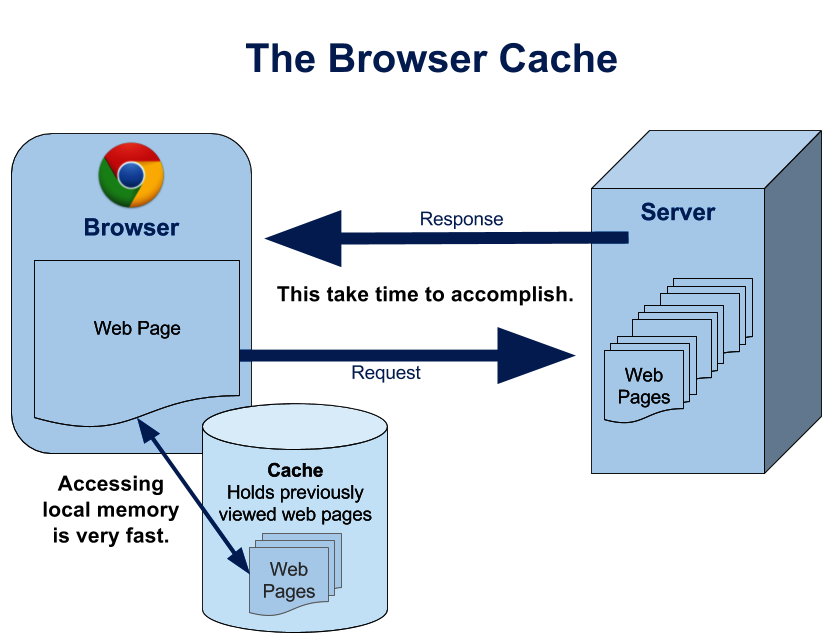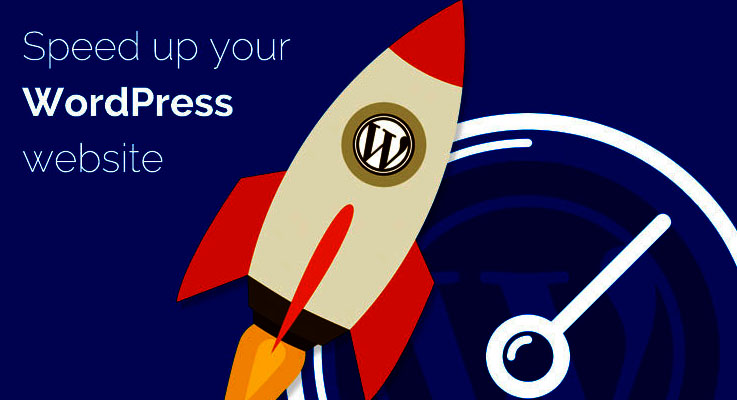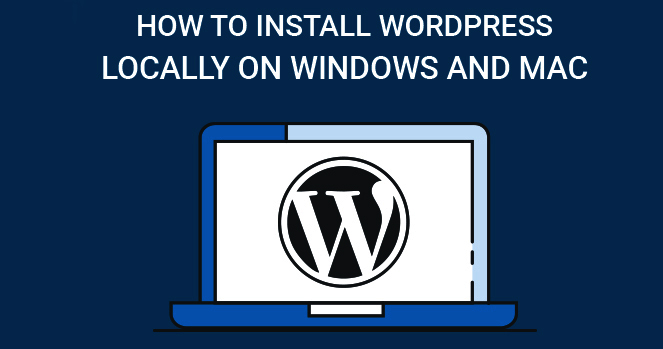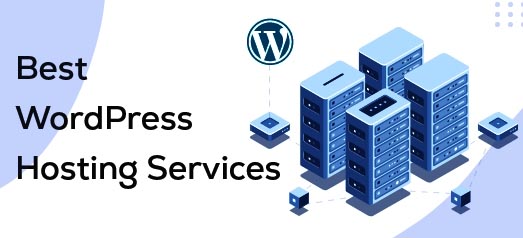Whenever someone visits your site, you have only seconds to catch their attention and keep them engaged in what your website has to offer you. If your entire site performance is reduced yet, you risk alienating some of the traffic that your website receives.
How to Use Caching to Raise the Speed of Your WordPress Site
Your WordPress site shuttles plenty of info between many distinct computers, close and far, to provide content to your viewers. Would you prefer to understand an excellent means to accelerate the recovery time of your articles, raise your website’s overall speed and functionality, and also decrease the traffic that flows round the net on a constant basis?
If that’s the case, you’re in the ideal location. The quickest, most effective method to maximize your WordPress site is via a concept known as caching, and in this guide, we’ll explain ways to take advantage of this to enhance the rate of your site.
Basics Caching
Before I explain just what caching is, I believe it’s necessary to first understand just what happens every time a visitor enters your site.
Whenever someone types in your site’s address a lot of things begin to occur. The customer’s browser contacts your internet server seeking your site. Your WordPress website then contacts your server (placed somewhere else on another computer( maybe far, far away) using technical PHP code. Your server subsequently accesses the principal database (usually MySQL) where each of your site’s content is saved. This database subsequently takes that petition, compiles it into a readable HTML page, and shoots it straight back to a WordPress website where the reader could actively view it.

The issue with this procedure is that it has the potential to take a very long time to recover the customer’s petition from the primary database, thereby slowing down the rate of your site. Now, nobody needs a slow site, and nobody wishes to pay a visit to a slow site. That is where caching comes into play.
By reusing information from your site that’s tapped into on a regular basis, your website avoids having to run around excursions throughout the world wide web to retrieve that info.
Caching Why and How
There are lots of manners caching helps to boost your WordPress website’s speed. By generating static, or unchanging, HTML documents and saving them for later usage, caching effectively reduces your host’s load, reduces your bandwidth usage, and above all, helps your website avoid delays in relaying information for your customers.
Browser Caching
Web browsers maintain a local cache of HTML documents that were downloaded on any particular site. When a petition is made by a reader to see your site, your WordPress host (if your website is configured to cache its own articles ) is”requested” from the browser if the documents trying to be obtained have been altered since they were downloaded. When the documents haven’t been altered, the internet browser only acquires the data in the regional cached copy, rather than asking that information out of the database storage.
Most pictures on your site are inactive and seldom change. In spite of continuous content being uploaded to your website, files like your header, fundamental images, footers, and sidebars usually stay unchanged. All these are ideal files to be redeemed on your website in order to reduce your website’s loading time and the general load on your host.
WordPress Caching
This sort of caching is configured in your WordPress server via using a caching plugin. There are several ways to personalize your preferred plugin to satisfy your website’s requirements.
WordPress shops your webpages in components in the most important database for later usage. When a reader creates a petition on your website, your website should then recover those components from MySQL and compile them so that the reader could see them as a complete web page (recall the aforementioned graphic?). If however, you’re using a caching plugin, these HTML pages have been stored in their entirety at the cache already assembled and ready to be delivered immediately.
Another way you and your WordPress server can maximize your site’s functionality is by minding your caching plugin to store query results which are very popular on your website. As opposed to retrieving this info from throughout the world wide web over and over, wasting time and slowing your website down, the cache stays onto the outcomes of those queries and supplies them into the reader straight away. Again, consider quick and effective content recovery.
Dynamic (Shifting ) Files
Up until today, the attention of caching was completely on the concept that it works better if coping with unchanging, more durable files. And it will.
But, caching isn’t only for static files. In reality, even lively, or ever-changing files may gain from caching too.
After you configure your own caching plugin, there’s a choice to set the expiry date. This data informs your cache that for this set quantity of time (if it’s 1 week, 1 month, even 1 year) that file will remain unchanged, so thus it’s safe to cache and apply for future searches.
As an example, your WordPress site is usually an abysmal picture, cached so that if someone enters your website your picture looks quickly as light. However, it’s safe to state that at some point or another this header picture could possibly be substituted (therefore turning into a lively file) with an upgraded picture more to your liking.
It’s in this manner your cache may upgrade itself following the expiry date passes, refraining the picture cache, and exhibiting the new picture as fast for your readers. And what is even better is that because this expiration date is configured to take place automatically, you do not even have to be sure to re-cache anything on your website that’s ordinarily static but that will change sometimes.
Much more so, lively files may also have reduced expiration dates place so they are always being cached but at a much faster rate.
There are several distinct options when it comes to picking that caching plugin to use in your WordPress website. Though all of them increase the rate of your site (since they effectively cache your articles ), there are lots of alternatives to select from in regards to configuring your true plugin.
Let us Look at the two hottest caching plugins for WordPress:
W3 Total Cache

It caches pages, browsers, databases, objects, feeds, search results, plus even more. It is simple to set expiration dates for every sort of caching your site uses.
The further attributes this plugin provides are astonishing. You might even need support from your hosting company if you encounter any problems attempting to configure it on your own. Fortunately, the default options are rather optimal and simple to access, so changing the preferences isn’t necessarily significant.
The only real thing to W3 Total Cache is that it depends heavily on memory (instead of that disc ) caching. When this yields better results, many WordPress consumers are on a shared server and possess a simple account. This implies there might not be sufficient space on the machine for one to memory. In reality, it might not even be permitted depending on your own hosting service along with the tools you’re permitted to access.
That having been said, W3 Total Cache is functioning for nearly a thousand WordPress users along with their sites. According to its attributes, this plugin requires no excuse as to why it’s among the very recommended caching plugins available on the industry at the moment.
Generating static HTML documents from the lively WordPress site, WP Super Cache is just another competitor for the finest WordPress caching plugin.

This plugin takes exactly what HTML documents your server provides and retains them for later usage, rather than supplying the slower PHP coded scripts. These documents, though delivered to all your site’s readers (99 percent of them really ), aren’t given to most users. Those contained in getting static documents are:
- Users that aren’t logged ;
- Users who haven’t left a comment on your site;
- Users not having seen a password protected article.
The rest of the users may continue to get the very same files, although they are cached in another manner.
There are 3 configurations used to use this plugin to Accelerate your site’s functionality:
Mod_Rewrite mode simplifies PHP coding entirely when regaining static files to your own readers. But do not worry, even though your customers might not encounter this”super caching” frequently, they’ll experience no extra delay during normal website functionality.
PHP manner is if your server uses PHP to provide files. This isn’t quite as quickly as Mod_Rewrite but for many WordPress users that this is going to be quick enough.
The final mode is known as legacy caching. That is for the 1 percent of individuals not experiencing the inactive file shipping in Mod_Rewrite mode since they’re known users of the site.
It’s strongly recommended however that you assess the advanced segment and empower all the”recommended” boxes.
Ultimately, WP Super Cache appears more user friendly and easy to use in comparison to W3 Total Cache. It doesn’t however lack from the feature section and it certainly increases the rate of your website.
With all the WordPress caching plugins accessible, it was clear to stay with the two hottest. But, there are a number of noteworthy others who may offer all the advantages of caching to a WordPress website too. They comprise:
WP Rocket

WP Rocket is a favorite premium caching support for WordPress sites. Part of its allure is that it’s possibly one of the simplest caching solutions to use to your site. This can help make it an ideal option for people who only need a quicker site, and do not mind investing a bit so they can begin reaping all the benefits that include improved loading times.
Simply allow caching and allow it to do its own job. Another super easy, yet quite common plugin. WP Fastest Cache provides just 10 configurations on the primary webpage to configure.
Depending on the initial plugin Hyper Cache, this plugin is a great selection for people who have limited funds on a fundamental shared hosting program.
Conclusion
All WordPress sites, large or small, simple or complex, should take advantage of some kind of caching plugin so as to maximize site performance. Does this enhance your customer’s experience and invite them to return for longer, it is going to help drive traffic for your website thanks to increasing search engine ranks.
In the long run, it does not really matter which caching plugin you opt to utilize. All of them offer quicker loading times and a general performance increase. Try out a couple. See which innovative settings you prefer and dislike, and then make a determination.
Website speed is similar to your standing. Should you allow it to deteriorate, nobody is going to want to see. So make a fantastic impression on your customers, and get started using a WordPress caching plugin today.






